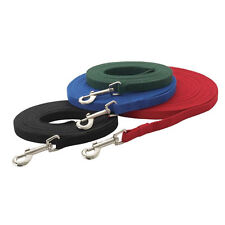Guide: Finding an Obedience Program for Your Dog

Many dog owners I speak to have said had they known what to look for in a program, they would have done more research and found better classes. Many people do not know what to look for in a dog-training program. They often assume just because someone uses the title "Trainer" or "Behaviorist" that the classes are quality.
Just because someone has a flashy ad or is listed on a website does not mean the program is good. The average dog owner spends more time picking out shoes than they do a training program! This is not good. The people you seek out to help you with your dog or puppy can make all the difference in the world!
There are several things to take into consideration when looking for a program:
- Class sizes: the larger the classes, the less individual attention you will get. Even if there are helpers, you may not get the same attention as in a smaller class. Classes should be no more than 6 – 8 dogs.
- Will the instructor let you observe a class before you enroll? If not, find someone else. You should have the chance to observe the teacher in action first.
- How does the instructor handle the class? Is he like a drill sergeant and not encouraging? Does he explain and show as opposed to just hoping you can figure it out? Even if people are discouraged, does the instructor find at least one area of improvement and point it out?
- Is the technique adapted to the dog or is the dog expected to fit the technique? If something is not working, will the instructor use other techniques to find what works best for the dog or continue on with something that is not working?
- Does the instructor provide the class with collars and leashes or are you expected to provide your own? If a pup outgrows a collar or the type of collar given not the best, will the instructor switch to a better suited one?
- Are you given any form of written instruction to help you remember how to work with your dog?
- Is the instructor available before or after classes to work with you? Can you reach the instructor between classes if a problem arises that may not be able to wait? Can you call even after the series is over and ask questions?
- Is the instructor a member of a national group such as the Association of Pet Dog Trainers? Has he or is he working towards any form of independent accreditation such as offered by the Certification Council for Pet Dog Trainers through the Professional Testing Corporation? These tests are not given by a school or training association, rather they are similar to board exams which are given by a separate entity.
- Lastly, how do YOU feel when you talk to the instructor and observe a class? Do you feel comfortable?
Now, with all this in mind, it is easy for the dog owner to be blinded by titles and awards or time in the field. Just because someone has titled fifty dogs in advanced obedience or has been training for thirty years does not necessarily mean they are good. It just means they have had the time and money to get out and show a lot or they have spent years with dogs.
I have observed more than one long-time person whose dogs have racked up hundreds of titles but the training techniques are harsh and based on forcing the dog to work as opposed to motivating the dog with fun. Try to see beyond titles and to how the person will work with you and your dog.
How does the trainer address problem dogs like ones that are overly aggressive and may not be safe for the class? If a dog has a behavioral issue, will the trainer refer to a behaviorist and work with the behaviorist as well as a vet if needed to get the best help? Does the trainer admit to his limits or does he try and take on any dog regardless of if he is safely able to? Does the trainer refuse to allow certain dogs based solely on breed or cross?
A good trainer knows limits and will do he can to help you and not hesitate to seek out others to consult with. Taking on a dog that is too much behaviorally when the trainer may not know how to most effectively work with the behaviors is dangerous. Does the trainer address how to take class lessons and apply them practically to daily life? Does the trainer talk about things such as socializing and enriching a dog’s life? Does the trainer teach classes geared for the average dog owner or competition? What you are told in class is no good unless you can apply it practically. What about other issues such as good manners?
All the training in the world on basic commands is no good if the dog has other bad manners. It is not uncommon to hear people say the dogs works great in class but is a bozo at home or vice versa. Does the trainer address this issue and trouble shoot ways to improve the daily life with your dog? Will the trainer address good doggy manners as well as commands? There is so much to consider when choosing an obedience/manners program for you and you canine companion!
The type of trainer you pick will be very important is helping you develop a good, solid working bond with your dog or puppy. The trainer who uses all force and harsh corrections should be avoided. The goal of training is not to force a dog to learn but rather to make him want to learn and bond with you. There is no one perfect way to train all dogs as dogs are individuals. What works for most of the class may not work for your dog. A good instructor will know this and find the best way to help you and your dog.

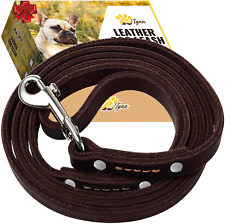
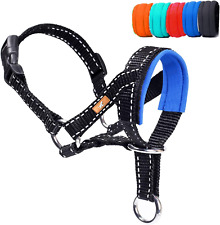
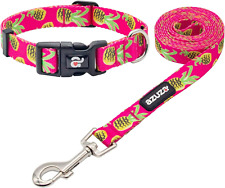
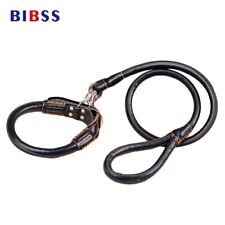
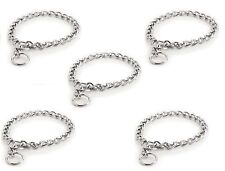


![🐶Reebok Dog Collar Small 9-14 In Lime Green & 5ft Leash [Brand New]🐶 picture](/petstore/img/g/O6cAAOSwrx1kse2X/s-l225/-Reebok-Dog-Collar-Small-9-14-In-Lime-Green-5ft-Le.jpg)
